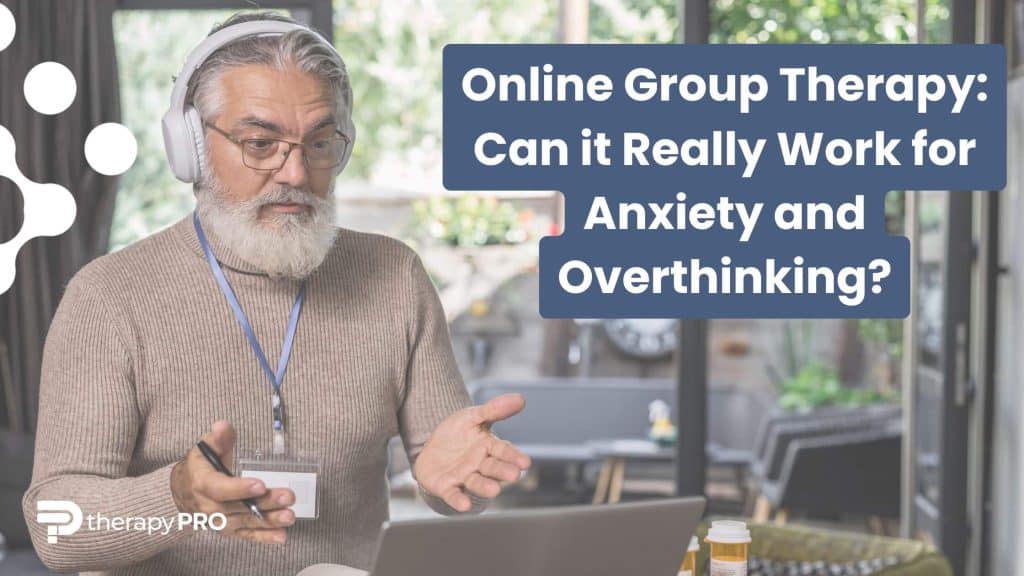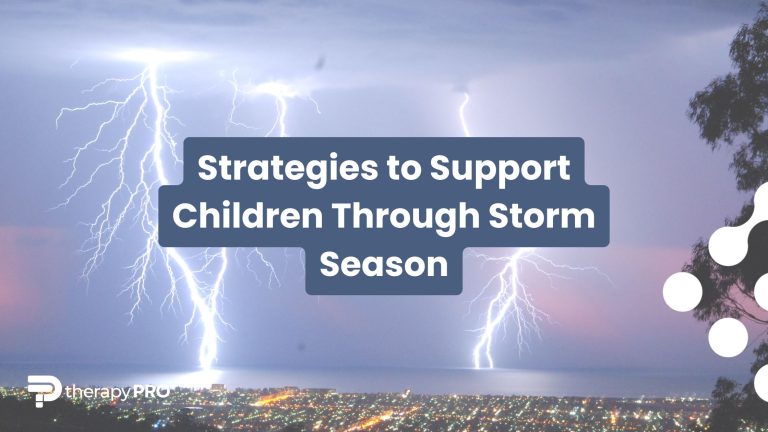Online Group Therapy: Can it Really Work for Anxiety and Overthinking?
Do you find yourself caught in spirals of overthinking, or feeling anxious about things you can’t seem to control, only to wonder if talking to an online group could really help?
If the idea of online group therapy feels a little uncomfortable or even impossible, you’re not alone.
It’s common to have questions: Will it feel awkward? Is it private? Will I get something out of it?
In this article, we’ll explore how online group therapy works, the benefits it offers, and how it may be helpful for people experiencing ongoing anxiety and rumination.
We’ll also outline a type of therapy called Metacognitive Therapy (MCT), which is an evidence-based technique which is effective in treating depression and anxiety related disorders and obsessive-compulsive disorder.
Can group therapy be done online?
Yes, group therapy can be done online, and many people find this format helpful.
Online group therapy has become an increasingly popular and effective option for individuals seeking support, especially in the wake of growing demand for flexible, accessible mental health care.
Sessions are delivered via secure video platforms, like Microsoft Teams. Participants join a small, facilitated group where they can connect, reflect, and learn strategies to manage their challenges in a structured and supported way.
Being in your own environment can make it easier to open up, participate, and engage with the material in a way that feels safe.
What are the benefits of online group therapy?
Aside from being convenient, online group therapy offers several benefits that make it a good fit for many people living with anxiety or chronic worry:
- Accessibility – Join from home, work, or anywhere with a stable internet connection without the need to travel
- Affordability – Group programs are often more cost-effective than individual sessions and may be an option if you have exhausted your yearly mental health care plan.
- Confidentiality – Delivered via professional platforms with clear boundaries around privacy and safety
- Peer support – Shared experience can help reduce isolation, creating space for connection and learning
Whether you’re balancing work and family, managing social anxiety, or just prefer the comfort of your own space, online therapy can offer the same high-quality support as in-person programs, with added flexibility.
So, if you’re wondering what is the best online therapy for anxiety, the answer depends on your needs. But if you’re struggling with worry and overthinking, Metacognitive Therapy (MCT) is one approach to consider.
Why MCT works in a group setting
MCT is a structured psychological approach that focuses on worry and rumination being a learned behaviour and pattern of thinking that may have felt helpful in the past but now makes us feel out of control.
Although we can’t control the challenges ahead of ourselves, we can always improve how we face them: equipped with an understanding of what worry and rumination looks like, we can shift our attention away from the rabbit hole of possible solutions into solution based actions and open the possibility to improving our wellbeing and quality of life.
In a group setting, MCT works well because:
- Group therapy allows participants to learn from each other’s experiences, which normalises what they’re going through
- The group offers opportunities to reflect, practice new skills, and receive support from others who understand
If you’re searching for support with Metacognitive Therapy for anxiety, depression, obsessive compulsive disorder online group therapy might be a helpful and accessible way to get started.
And our upcoming program might be a good fit for your needs.
About our online group therapy program
At Therapy Pro, we offer a 7-week psychological group therapy program that uses MCT techniques to help participants manage worry and rumination.
Here’s what to expect:
- Evidence-based MCT strategies, delivered by 2 facilitators
- A small group to allow time for reflection and interaction
- Weekly sessions via Microsoft Teams, each building on the last
- Practical tools you can use in daily life to shift from overthinking to action
This is a supportive, non-judgemental space designed to help you build tools and strategies that may support you in managing worry and rumination.
Is online group therapy right for you?
This program may be a good fit if:
- You struggle with ongoing worry, rumination, overthinking, or anxiety
- You’re open to learning new strategies and tools
- You want support from a professional, but also value shared experience from peers
- You prefer a flexible, accessible option that fits your schedule
We understand that reaching out for help can feel hard, especially when your thoughts are telling you to keep it all inside.
But you don’t have to go through it alone.
Ready to Take the Next Step?
Our next online Worry and Rumination group program commences on 5 August and places are limited to maintain a small group format.
If you are ready to take the next step, reach out by filling in our form below and we will be in touch to discuss.
About Therapy Pro’s Psychology Team
Therapy Pro’s team of registered and provisional psychologists support clients across Australia.
Our psychologists address a wide range of psychological needs – from mental health concerns, functional impairments related to lifelong disabilities, challenges with life transitions, behavioural concerns, and developmental challenges.
As a registered NDIS provider, Therapy Pro offers NDIS psychology supports under Improved Daily Living funding, and also offers fee-for-service, Medicare, and WorkCover services.
All supports are delivered by qualified professionals, including provisionally registered psychologists under clinical supervision, in line with ethical and professional standards.
+++
Important notice: This information is general in nature and is not intended as personal advice. Individual responses to therapy vary. We recommend consulting with a qualified professional to discuss your specific circumstances and determine the most appropriate treatment approach for your needs.




